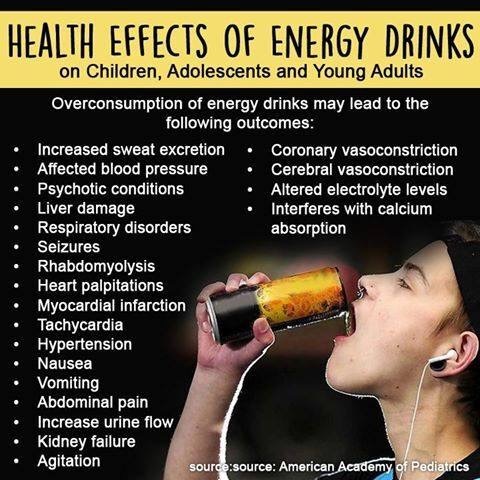Energy Drinks - Do you need them?
January 31, 2018

As a regular gym goer for both work and pleasure (how could you not enjoy keeping fit) I often see people working out with a can of Red Bull or some other ‘Energy Drink’ in one hand and a dumbbell in the other. Most of these are young gym goers who have made a conscious decision to exercise and be healthy on one hand but appear to be sabotaging that on the other.
I’ve wondered to myself what am I missing about energy drinks that they know that I haven’t found out through years of reading studies and keeping abreast of current research.
Here’s what we know, the market for energy drinks is huge, worldwide it’s valued at US$43 billion, and by 2025 it’s expected to be worth in excess of US$85 billion. A recent study by the University of Auckland, published in the Journal of Paediatric Child Health noted that 35% of young people had consumed energy in the past week and 12% consumed an energy drink 3 or 4 times a week. Consumption was linked to greater depressive symptoms, emotional difficulties and a lower general subjective wellbeing.
Greater awareness of energy drinks has led to recent headlines of young people being banned from buying these drinks in the UK and other countries by ‘responsible’ supermarkets. This will be the same supermarkets who loss lead high sugar and high fat products as you walk into the store and sell sweets by the checkouts.
Anyway coming back to the energy drinks, what’s in them?
Whilst no two products are the same, they do contain some common ingredients:
Sugar and lots of it 50g+
Caffeine 140 mg+
Taurine 2000mg
Niacin 40mg
Ginseng 50 - 400mg
Guarana 50 mg
L-Carnitine 50 mg
All of which are supposed to ‘give you wings’ and make you more alert. Interestingly some of these ingredients have little or no effect on their own, but in combination can boost cognitive performance.
Caffeine appears to be the main ingredient and combined with other caffeine containing ingredients can boost the total amount to 200 mg or more. A typical coffee has 95 mg, with a daily consumption of below 400 mg considered safe for adults and for children less than 80 mg or 2.5 mg per kg of body weight.
What’s the risk?
Apart from contamination by unknown additives, those who consume energy drinks risk seizures, dysrhythmia (abnormal heart rhythm) tachycardia (abnormal rapid heart rate) tachypnea (abormal rapid breathing), reduced blood flow to the brain, cardiac arrest, acute coronary thrombosis to name a few.
The risks for pregnant women or those trying to get pregnant and children are even higher and they should limit or ideally exclude the consumption of energy drinks. This group are at risk of long lasting cognitive impairment through the consumption of caffeine at the levels consumed in a typical energy drink.
Is it all bad?
There is good evidence that energy drinks can benefit mental performance, fight fatigue, improve strength and endurance, but only under the right circumstance.
In this case more is not necessarily better.
So should you consume an energy drink before or during a workout?
The short answer is it depends on may factors such as you age, gender, weight, health condition and what you are trying to achieve. For most people who work out in the gym its possibly not giving you any real long term benefit, you might in fact get similar benefits with a strong coffee with no sugar.
So next time you hit the gym see if you can work out as hard without an energy drink, you will save a few dollars, consume less sugar and reduce the negatives associated with caffeine consumption.
Written by Lee Jones - Source Examine.com